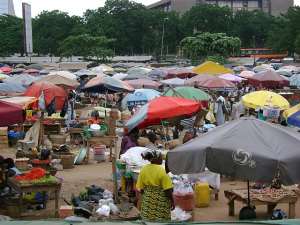
A discussion developed recently on Linkedin that caught my attention. An organization was offering start-up grants ranging between $10,000 and $20,000. One reader challenged the organization to increase the value of their grants, because no truly sustainable project could be funded by such small amounts of money. A debate ensued about the meaning of sustainability and the appropriate methods for funding such projects. While the necessary funding depends on the scale of your project, I think we are often deceived into believing that the more funding somehow equates to more sustainabilitythe bigger the better! But, I don't think this rule applies to development work. In fact, I think this kind of perspective is often detrimental.
The core of a truly sustainable project is empowerment. It's not technology-enhancements, subsidized resources, loans, or hand-outs. And I don't believe any of these things lead to or facilitate empowerment. They actually do quite the opposite. They foster dependence, lack of confidence in one's own knowledge or tradition, and complacency. In addition to that, they are often the unnecessary things that bulk up a program's budget. It is not necessary to buy people things to empower them or develop them. Often times, if it's not something already obtainable to them, they won't know how to use it anyway. And more importantly, when it breaks or runs out, they won't know how nor be able to fix or replace it. All too often I have seen shiny, new solar panels crack and become storage shelves in peoples' homes. Subsidized fertilizer becomes someone's new retail venture. Broken or unused farm tools and computer parts are used as toys by children.
Any development project looking to be successful (and which isn't?) needs to assess the skill-sets and resources already within reach and educate the people in maximizing these potentials first. When they have, a whole new set of potentials should arise, and the people will now have the skill-sets to go after them. They will also be able to pass these skills on to their predecessors. That is empowerment, and that is sustainable. It is not always very flashy, but it is effective and much lower in budget.
Mankama Sulemana is an agriculturalist specializing in maize, roots, and tuber crops and animals rearing, a graduate of the University for Development Studies, and the co-founder of Clash International.
Clash International (www.clashinternational.org) is a non-profit organization concerned with cross-cultural understanding and partnership, seeking to find solutions to community-identified challenges through a development culture that is collaborative, self-sufficient, and sustainable.




 Dumsor: Mathew Opoku Prempeh has been disrespectful, he should be fired – IES
Dumsor: Mathew Opoku Prempeh has been disrespectful, he should be fired – IES
 NPP prioritizing politics over power crisis solution — PR Strategist
NPP prioritizing politics over power crisis solution — PR Strategist
 E/R: Gory accidents kills 3 persons at Aseseaso, several others critically injur...
E/R: Gory accidents kills 3 persons at Aseseaso, several others critically injur...
 Nobody can come up with 'dumsor' timetable except Energy Minister – Osafo-Maafo
Nobody can come up with 'dumsor' timetable except Energy Minister – Osafo-Maafo
 Dumsor: You ‘the men’ find it difficult to draw timetable when ‘incompetent’ NDC...
Dumsor: You ‘the men’ find it difficult to draw timetable when ‘incompetent’ NDC...
 We’re working to restore supply after heavy rains caused outages in parts of Gre...
We’re working to restore supply after heavy rains caused outages in parts of Gre...
 NPP government plans to expand rail network to every region — Peter Amewu
NPP government plans to expand rail network to every region — Peter Amewu
 Dumsor must stop vigil part 2: We’ll choose how we demonstrate and who to partne...
Dumsor must stop vigil part 2: We’ll choose how we demonstrate and who to partne...
 2024 elections: NDC stands on the side of morality, truth; NPP isn't an option —...
2024 elections: NDC stands on the side of morality, truth; NPP isn't an option —...
 Akufo-Addo has moved Ghana from 'Beyond Aid' to ‘Beyond Borrowing’ — Haruna Idri...
Akufo-Addo has moved Ghana from 'Beyond Aid' to ‘Beyond Borrowing’ — Haruna Idri...
